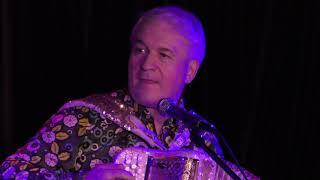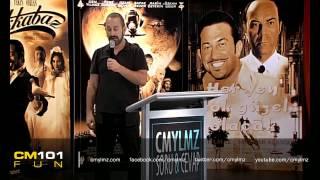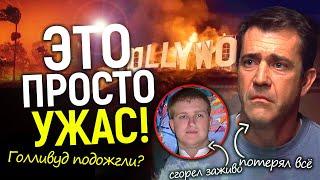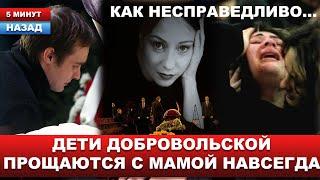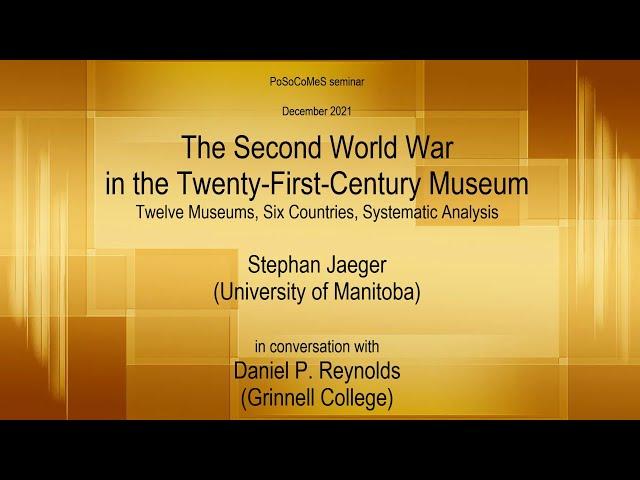
PoSoCoMeS seminar #6: The Second World War in the Twenty-First-Century Museum
Stephan Jaeger in conversation with Daniel P. Reynolds
In the monthly online PoSoCoMeS seminar, Daniel P. Reynolds discusses the book The Second World War in the Twenty-First-Century Museum. From Narrative, Memory, and Experience to Experientiality (De Gruyter 2020) with the author, Stephan Jaeger. In conversation between the book's author, the discussant, and the audience, the seminar participants explore the book's take on how museums reflect and shape cultural memory.
Stephan Jaeger's book discusses multiple ways in which twelve museums in six countries display and narrate the Second World War. As the war fades from living memory, this study is the first to systematically analyze how Second World War museums allow prototypical visitors to comprehend and experience the past. The book shows how museums reflect and shape cultural memory, as well as their cognitive, ethical, emotional, and aesthetic potential and effects. This includes a discussion of representations of events such as the Holocaust and air warfare. In relation to narrative, memory, and experience, the study develops the concept of experientiality (on a sliding scale between mimetic and structural forms), which provides a new textual-spatial method for reading exhibitions and understanding the experiences of historical individuals and collectives.
Stephan Jaeger is Professor of German Studies at the Department of German and Slavic Studies of the University of Manitoba in Winnipeg, Canada. His research interests include, among others, museum narratives and experience; relations between literature and historiography/history; poetics and narratology of historical writing; representations of war and Holocaust. He has published extensively on the representation of violence in museums and memorials across the globe. His current research project further develops the concept of “experientiality” for the analysis of museums.
Daniel P. Reynolds is Professor in Modern Languages in the German Department at Grinnell College, Iowa, USA. His recent book, Postcards from Auschwitz (NYU Press, 2018), explores the relationship between tourism and Holocaust remembrance. His other research interests include German literature and culture from the late 19th century to the present, with special emphasis on the Weimar Republic, East Germany, the history and culture of Berlin, and German colonialism and the genocide of the Nama and Herero people in today's Namibia, a former German colony.
In the monthly online PoSoCoMeS seminar, Daniel P. Reynolds discusses the book The Second World War in the Twenty-First-Century Museum. From Narrative, Memory, and Experience to Experientiality (De Gruyter 2020) with the author, Stephan Jaeger. In conversation between the book's author, the discussant, and the audience, the seminar participants explore the book's take on how museums reflect and shape cultural memory.
Stephan Jaeger's book discusses multiple ways in which twelve museums in six countries display and narrate the Second World War. As the war fades from living memory, this study is the first to systematically analyze how Second World War museums allow prototypical visitors to comprehend and experience the past. The book shows how museums reflect and shape cultural memory, as well as their cognitive, ethical, emotional, and aesthetic potential and effects. This includes a discussion of representations of events such as the Holocaust and air warfare. In relation to narrative, memory, and experience, the study develops the concept of experientiality (on a sliding scale between mimetic and structural forms), which provides a new textual-spatial method for reading exhibitions and understanding the experiences of historical individuals and collectives.
Stephan Jaeger is Professor of German Studies at the Department of German and Slavic Studies of the University of Manitoba in Winnipeg, Canada. His research interests include, among others, museum narratives and experience; relations between literature and historiography/history; poetics and narratology of historical writing; representations of war and Holocaust. He has published extensively on the representation of violence in museums and memorials across the globe. His current research project further develops the concept of “experientiality” for the analysis of museums.
Daniel P. Reynolds is Professor in Modern Languages in the German Department at Grinnell College, Iowa, USA. His recent book, Postcards from Auschwitz (NYU Press, 2018), explores the relationship between tourism and Holocaust remembrance. His other research interests include German literature and culture from the late 19th century to the present, with special emphasis on the Weimar Republic, East Germany, the history and culture of Berlin, and German colonialism and the genocide of the Nama and Herero people in today's Namibia, a former German colony.
Комментарии:
Найти СИДЕЛКУ в Адлере ЗА 2 часа
Роскошный Персонал
Growth Hormone Deficiency (GHD)
1 Post Medicine
Cem Yılmaz | Moleküler Biyoloji ve Genetik
Cem Yılmaz
Juror #2 | Official Trailer
Warner Bros. Pictures
Отзыв о работе юристов "Курс дела" 2
курс дела подкаст
Hot Knife | WMD Products
WMDTECH






